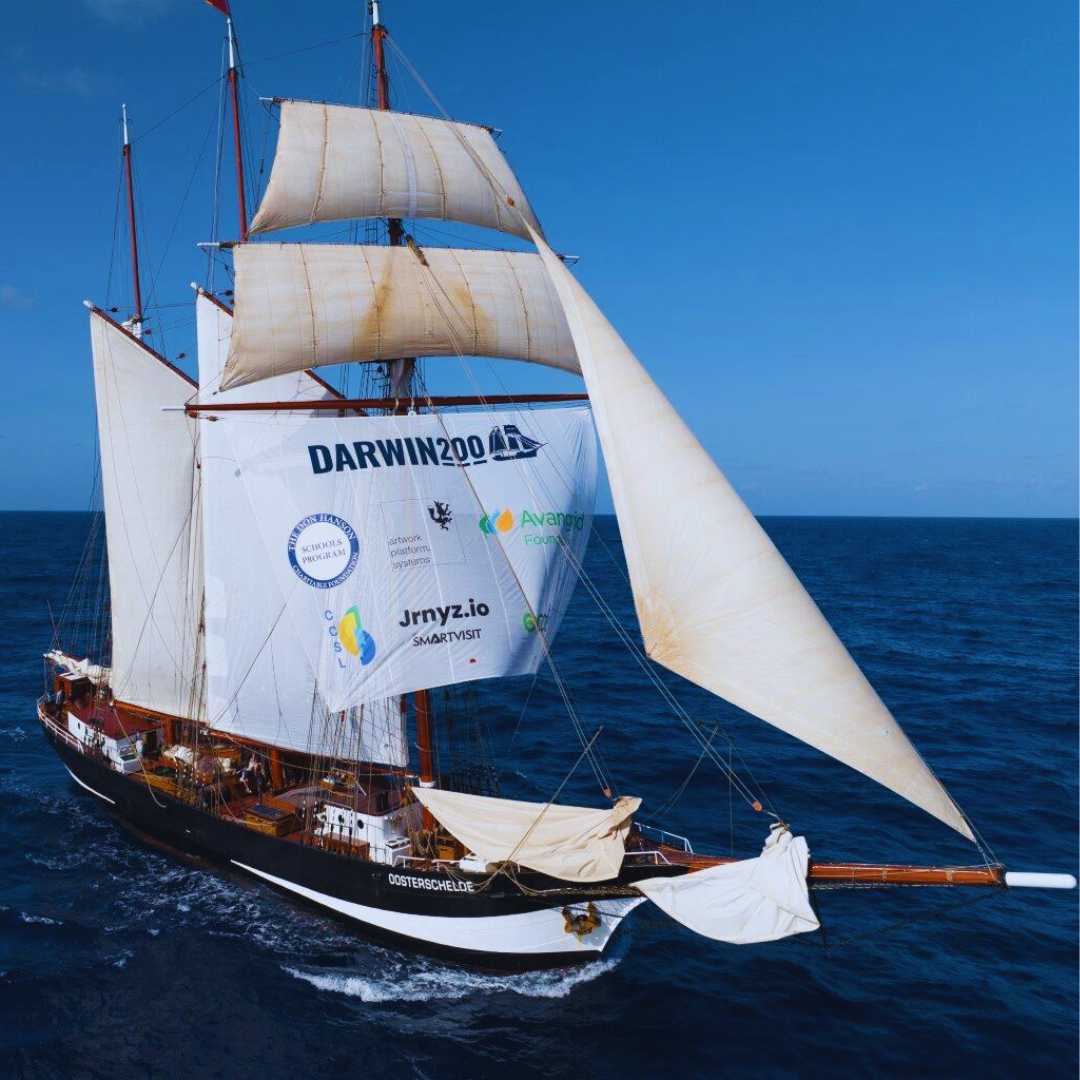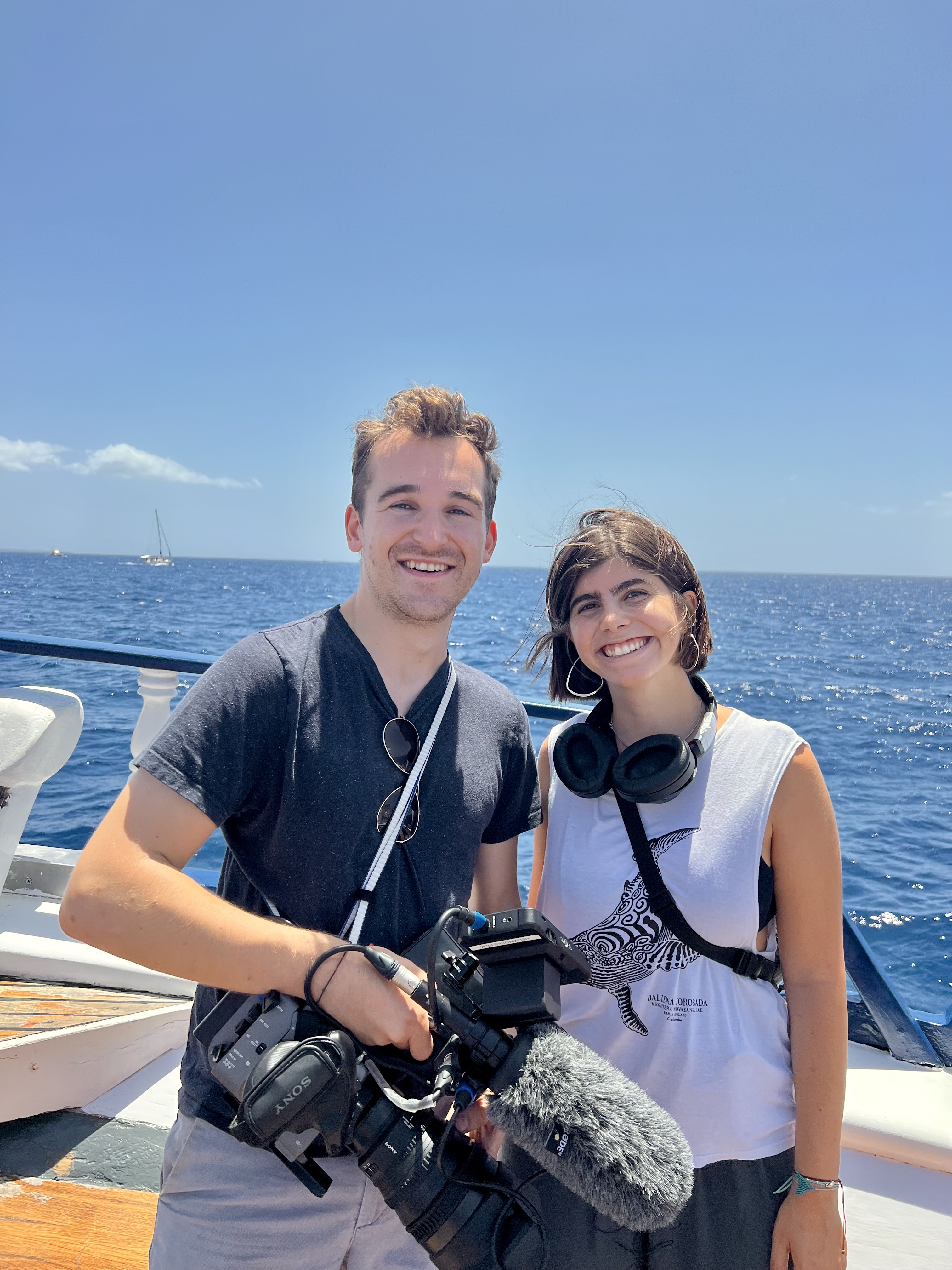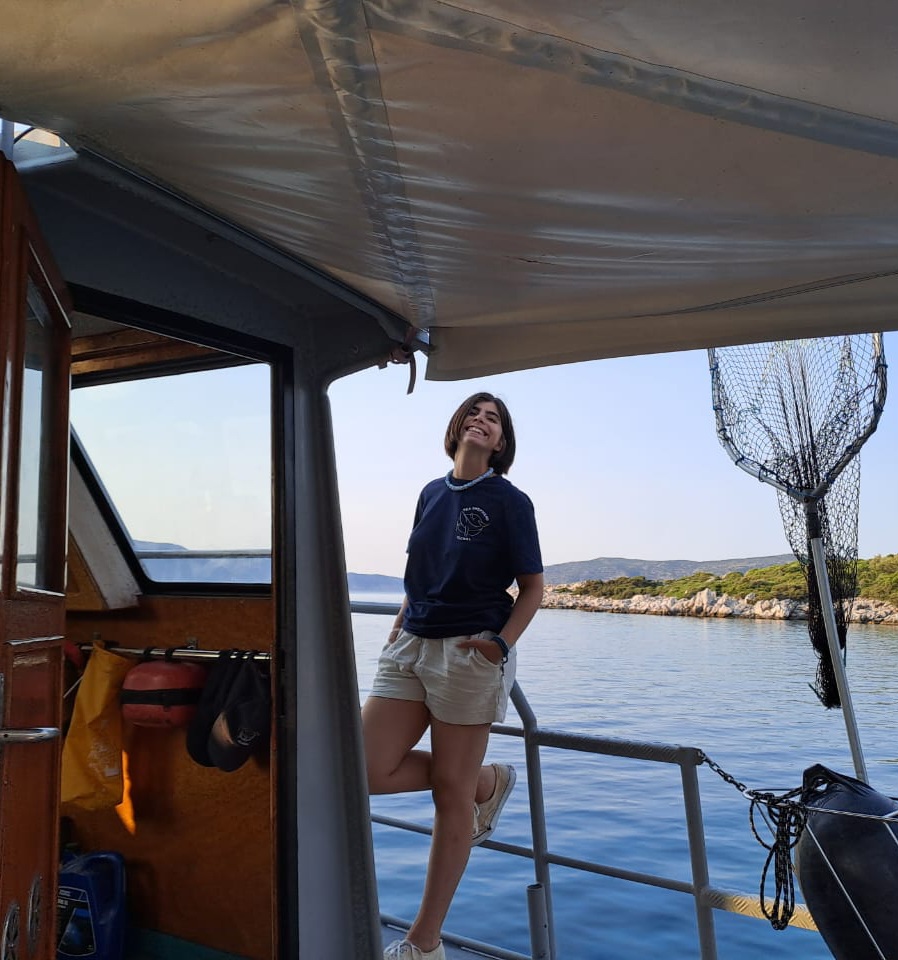Stay
informed
Sign up for our newsletter to get the latest updates, thoughts and information from CCSL
The DARWIN200 Global Voyage will make landfall at key locations where Charles Darwin stepped ashore during the voyage of HMS Beagle. During each of these stops, the ship will host groups of DARWIN LEADERS to undertake research projects in exactly the same locations visited by Charles Darwin two centuries ago

Each DARWIN200 Leader will join the voyage at a port along the itinerary for one week. They will be hosted aboard our spectacular, historic tall ship Oosterschelde, which will be used as a floating laboratory and media platform. Here they will study an animal or plant that Charles Darwin studied in the port they visit. It can also involve studying a threatened habitat, or potential effects of re-establishing indigenous people’s connection with its original environment

In her Darwin200 project, Iro focused on the delicate balance between tourism and marine conservation in Teno-Rasca Marine Protected Area in Tenerife.
Despite its protected status, Tenerife’s marine life faces risks from whale watching, maritime traffic, and unauthorized vessels. Our goal is clear: preserving biodiversity while minimizing our environmental impact and responsibly managing marine life. Iro’s mission involves assessing the situation and devising sustainable proposals to address these challenges.

Objective 1: Investigate how the problem in question has changed since the time of Charles Darwin’s visit. Look into what has happened to the population/habitat, the factors behind the change you identify, and how significant the change has been.
Objective 2: Investigate the current conservation work being undertaken to safeguard your animal or plant species, or habitat. How effective this is, and if it is sufficient for the future.
Objective 3: Use initiative to explore what more could be done. Develop new ideas and strategies for the implementation of future conservation efforts to better protect your animal, plant or habitat.
